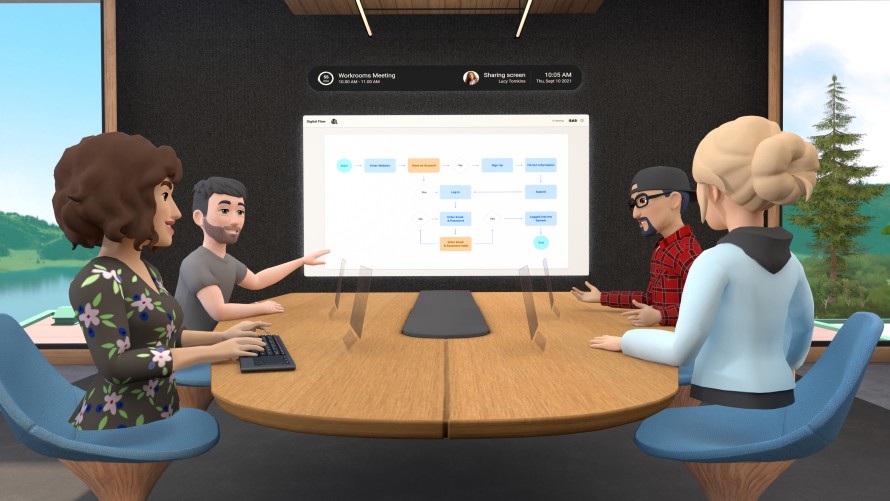Shall Internal Auditors be Prepared to “Metaverse”?
By Mikhail Ben Rabah, CIA, CFE, CRMA
Government Audit Manager, Presidency of the Government, Tunisia
The rapidly-evolving technology landscape never stops surprising and fascinating us. Internal auditors have been told to stay tuned for all aspects of “the digital age” and take advantage of it. However, every time they try to keep pace with this fast-changing world, they are overwhelmed by a new wave of digital transformation.
As the internal audit activity scarcely began to move into the world of blockchain technology, robotic process automation (RPA), artificial intelligence (AI) and internet of things (IoT), internal auitors may have now to adequately prepare for the advent of a major shift in internet technology: the “Metaverse”. The Facebook announcement on October 28th, 2021 persuades technology users that this change is so real and imminent.
There is no single agreed definition of Metaverse but it is commonly referred as “a speculative future iteration of the Internet, made up of persistent, shared, 3D virtual spaces linked into a perceived virtual universe”. This summary definition let us imagine the entire spectrum of this future technology use and benefits.
Metaverse is deemed to have the potential to shape organizations and therefore the internal audit activity. Internal auditors have to consider such digital changeovers as a “tailwind” making them continually anticipating the future and rethinking their profession.
How Metaverse may impact internal audit activity and how audit professionals can take advantage of it are no longer a farfetched idea or an unrealistic concern.
Obviously this blog is not intended to explore in details benefits and potential applications of Metaverse in the internal audit field but to identify some major areas of change that can benefit internal audit activity and threats to be aware of.
Potential Benefits
What is innovative of Metaverse is not the technology it uses since most metaverse platforms run on and make use of well-known technologies such as blockchain, AI, IoT, but the range of opportunities, these technologies, put together, can afford. Although what can benefit to the whole organization may benefit to the internal audit activity, there are some specific opportunities the profession can take advantage of.
Remote Auditing
The covid-19 pandemic has accelerated adoption of remote auditing by several internal audit departments not without some difficulty. A recent issue of IIA Global Perspectives and Insights -“Remote Auditing: Challenges, Risks, Fraud, Technology, and Staff Morale”- revealed some of the disadvantages/challenges of remote auditing. I will retain three: loss of in-person interactions and limits of video interviews and evidence gathering process.
- More authentic interviews
The virtual world of Metaverse has the power to improve personal interconnections by making interactions feel more authentic than the online video meetings. During the pandemic internal auditors have reported challenging online interviews with auditees. This is not only due to technology disruptions but also to the difficulty of avoiding or removing potential distractions during online video meetings. Metaverse technology will make meetings and interviews feel more real. This is typically important in fraud investigation interviews.
- More secure access to documents
Consulting documents and gathering evidence remotely were among the biggest challenges for internal auditors. Hopefully, Metaverse allows better interoperability between applications. There is no need to email, copy or download documents. Internal auditors would access documents immediately in secure shared virtual databases.
- Less privacy concerns
Many users of online platforms were embarrassed to expose their homes and private lives while working at home. Some were discouraged from letting their webcams turned on during online meetings. By allowing use of avatars and design of virtual workplaces, Metaverse may overcome some of privacy concerns.
Although this is supposed to be common to all kind of activities, it would be of great benefit for internal audit activity.
Agile Auditing
Metaverse could also facilitate agile internal auditing by enhancing and optimizing the process. It could be the ideal platform for fast and frequent communications through sprints, quick iterative audit activities, timely reporting, etc. In one word, Metaverse could help making the audit system more fluid.
Risks
While the Metaverse offers a wide range of business and audit opportunities in the post-pandemic world, it comes along with all risks associated with cybersecurity and emerging technologies. Internal auditors should be aware of “old” and “new” risks the convergence of virtual and physical world brings to their activity.
- Shall internal auditors be prepared to “Metaverse”? - November 6, 2021
- Overzealousness, a Threat to Auditors’ Objectivity? - January 19, 2021
- How Worthy Time Management is in Internal Auditing - December 28, 2020


Stay connected